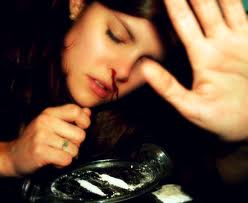10 Signs You Need Treatment for Cocaine Addiction
Anyone who uses cocaine for any length of time will start to notice certain changes in their overall health and well-being. While noticeable, most users continue to use in an attempt to self-medicate uncomfortable symptoms. This may actually work for a little while, but eventually these symptoms will only get worse the longer a person uses.
When ingested, cocaine’s effects happen almost instantaneously, causing brain cell receptors to release large amounts of dopamine, norepinephrine and serotonin, all vital neurotransmitter chemicals. With continued use, brain cell receptor functions start to deteriorate leaving the brain unable to regulate bodily processes. Meanwhile, evidence of weakened brain functions will gradually start to show up in a person’s everyday life.
If you’re wondering whether you or someone you know may need treatment for a cocaine addiction, here are the 10 signs to look for –
1. Loss of Interest in Friends & Family
Cocaine alters the brain’s reward pathway, which greatly affects a person’s motivations. The more a person uses the more important cocaine becomes. As a result, users start to neglect important relationships and so spend less and less time with friends and family.
2. Tolerance Level Increases
When a person needs increasingly larger doses to achieve the same desired drug effects, his or her tolerance levels have increased, according to Brynmawr College. This process becomes worse over time as brain cell receptors grow weaker and weaker.
3. “Crash” Episodes
Users experience feelings of fatigue and listlessness after binging or consuming large amounts of cocaine over an extended time period. It’s not uncommon for someone to sleep for days during a crash episode.
4. New Social Circle
Once cocaine becomes the focus of a person’s life, he or she starts to associate with like-minded individuals. Friendships form easily as everyone has the same purpose in mind: to use cocaine. In effect, the people that make up this new social circle become co-dependent partners in addiction.
5. Withdrawal Symptoms
Withdrawal symptoms occur whenever an addicted person tries to cut back or stop using altogether. Symptoms often take the form of –
- Depression
- Irritability
- Fatigue
- “Burn-out”
- Anxiety
- Aggression
6. Dilated Pupils
With long-term use, a person starts to develop physical characteristics that don’t go away. The ongoing effects of cocaine cause eye pupils to remain dilated for most of the time
7. Nosebleeds
While cocaine can be snorted, smoked or injected, nosebleeds develop from snorting the drug. Repeated drug use eventually destroys membranes in the nose, which results in frequent nosebleeds. Someone with a persistent runny or stuffy nose may also be showing signs of cocaine addiction.
8. Rapid Speech Patterns
Cocaine stimulates the central nervous system, which includes most every process regulated by the brain. Cocaine’s effects on emotions often create a manic state where users talk really fast for long periods of time.
9. Feelings of Extreme Anxiety
With long-term cocaine use, no amount of the drug can relieve ongoing feelings of anxiety. This condition results from damaged brain chemical functions, which will continue to deteriorate with continued drug use.
10. Money Problems
Compulsive drug-seeking behaviors can easily drive a person to spend money that he or she doesn’t have. At this point, a person’s life starts to fall apart, but the need to keep using cocaine remains.
